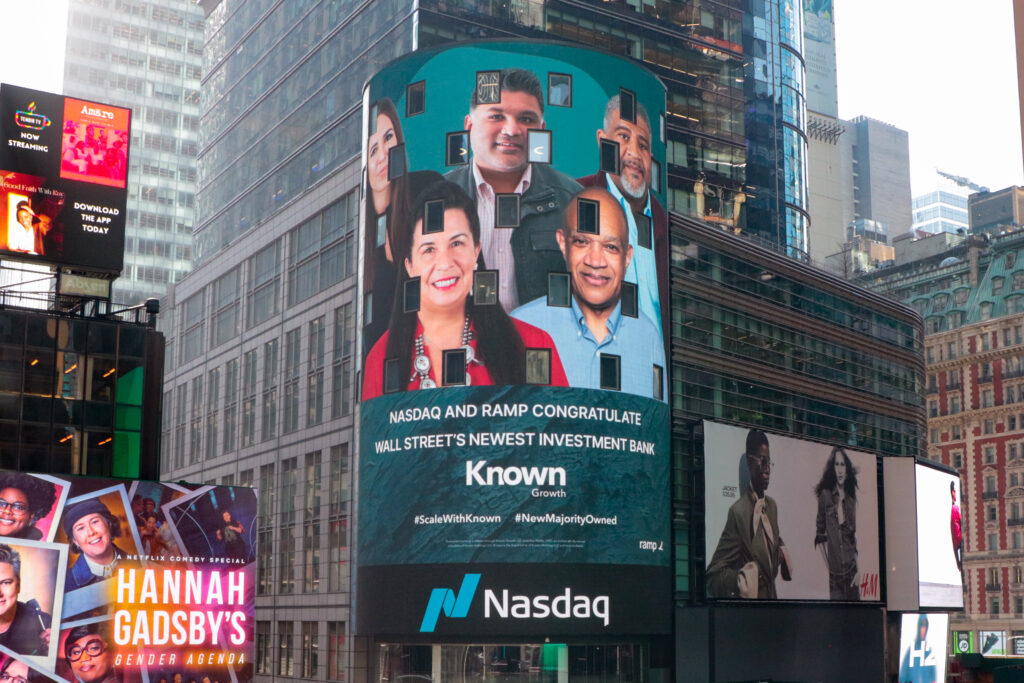ImpactAlpha, Jun. 8 – Years ago, Megan Kashner had to come out twice to the CFO of the Chicago nonprofit where she worked at the time. He thought she was joking the first time.
“The next day at lunch, he says, ‘That was really funny what you said yesterday. You had me going,’” Kashner recalls. “And everybody looks at him deadpan, like, “No, she really is a lesbian.”
The still-hidden talent among LGBTQ+ founders and entrepreneurs spurred Kashner, a professor and director of social impact at Northwestern’s Kellogg School of Management, to team with Bill Burckart of The Investment Integration Project, to launch Colorful Capital, a venture capital management firm that plans to raise a fund to invest in LGBTQ+-led companies. The firm timed its announcement for June, traditionally the month for LGBTQ+ pride parades and other celebrations.
“We are going to look at, celebrate and consider LGBTQ founders across the board,” Kashner told ImpactAlpha. “That said, the ones who have the biggest barriers to access to capital, and therefore the ones we are most able to add value to, really are these incredibly talented founders and leadership teams who are LGBTQ and also Black, also Latinx, who are trans.”
The thesis: “We think these are undervalued founders that, invested in and supported correctly, can definitely unlock value,” Burckart says. “They’re going to drive returns and then they will ultimately drive more benefits to the broader community.”
Focus on identity
A number of venture capital and impact funds include LGBTQ+ founders in their broader list of underrepresented groups targeted for investment. Only a handful of firms specifically focus on such entrepreneurs, including Chasing Rainbows, launched last year by seed-stage investor Ben Stokes. Gaingels, a network of angel investors, has deployed $500 million since 2014. StartOut’s Pride Economic Index found “LGBTQ+ founders have raised $13 billion in venture capital compared to $18 trillion raised overall.”
Kashner and Burckart say casual slights, misconceptions and outright biases against LGBTQ+ people continue to hinder the success of ventures, or the ability of founders to be open about their identities. “There are absolutely still issues around coming out,” says Kashner, especially for transgender people.
Colorful Capital’s report, “Barriers and Exclusion,” examines issues of access to capital through the stories of 10 LGBTQ+ founders. Two who identify as trans said they launched their own ventures for sustainable financial security and to escape oppressive work environments. Two lesbians turned to crowdfunding “out of necessity after failing to gain traction with venture capitalists.”
One trans founder reported that an investor told her to find “a straight white male to be the face of her company if she wanted to be ‘investable.’”
Kashner and Burckart, who both are keeping their day jobs, said the seeds of Colorful Capital were sown in a call to assemble a roster for an LGBTQ+ impact investing affinity group or Zoom cocktail party. “We both took a moment and looked at the list and said, ‘Oh, there is an incredible wealth of knowledge and connection and access to capital and experience on this list,” Kashner said. Their next thought: “What does this group owe our community?”
The pair have recruited an advisory committee that includes Invest Vegan’s Sloane Ortel, Impact Engine’s Priya Parrish, The Social Entrepreneurs’ Fund’s Lara Metcalf, consultant Steven Godeke, Kiva Capital Management, Katrina Ngo and Otho Kerr of the New York Federal Reserve Bank. San Diego-based Mission Driven Finance is providing back office support.
For some of the advisors, associating their names with an LGBTQ+ firm is a form of coming out, again, Burckart said. That’s true for him, as well.
“Professionally, this is the first time that I’ve led with my identity,” he told ImpactAlpha. “I pass, right? And there are plenty of instances where people just didn’t realize they were talking to a gay person, and the kind of casual homophobia that goes with that.”
Kashner said Colorful Capital is learning from other firms that have long worked to expand access to capital for underrepresented founders.
“It is not a panacea,” she said. “But when we look at the strength and financial capacity of the LGBTQ+ community, this is something that we can be doing together and in support of those in our community who are having a tougher time, and have incredible potential to add value for themselves, with their enterprises and for their communities.”











